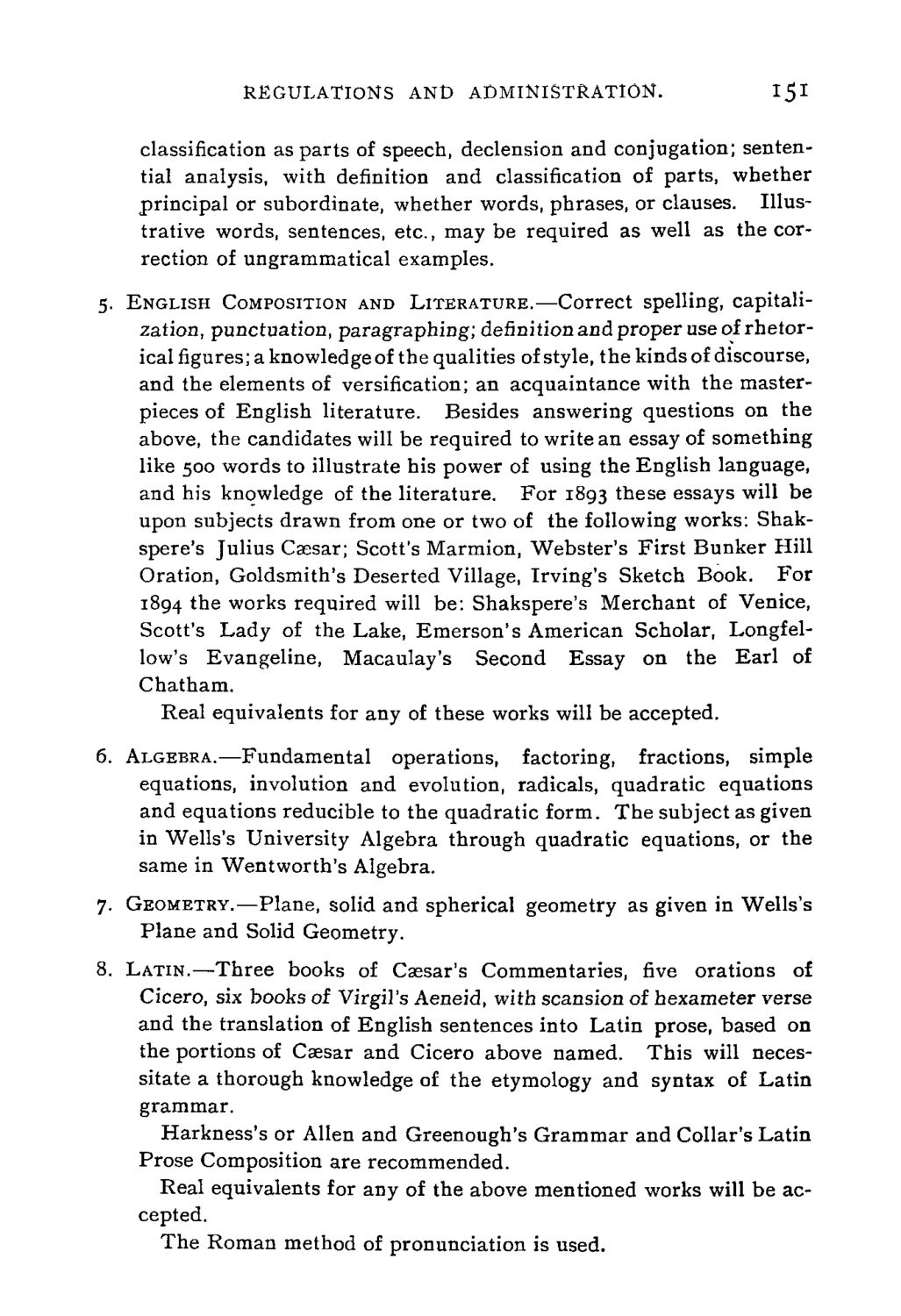| |
| |
Caption: Course Catalog - 1892-1893
This is a reduced-resolution page image for fast online browsing.

EXTRACTED TEXT FROM PAGE:
REGULATIONS ANt> ADMINISTRATION. 151 classification as parts of speech, declension and conjugation; sentential analysis, with definition and classification of parts, whether principal or subordinate, whether words, phrases, or clauses. Illustrative words, sentences, etc., may be required as well as the correction of ungrammatical examples. ENGLISH COMPOSITION AND LITERATURE.—Correct spelling, capitali- zation, punctuation, paragraphing; definition and proper use of rhetorical figures; a knowledge of the qualities of style, the kinds of discourse, and the elements of versification; an acquaintance with the masterpieces of English literature. Besides answering questions on the above, the candidates will be required to write an essay of something like 500 words to illustrate his power of using the English language, and his knowledge of the literature. For 1893 these essays will be upon subjects drawn from one or two of the following works: Shakspere's Julius Csesar; Scott's Marmion, Webster's First Bunker Hill Oration, Goldsmith's Deserted Village, Irving's Sketch Book. For 1894 the works required will be: Shakspere's Merchant of Venice, Scott's Lady of the Lake, Emerson's American Scholar, Longfellow's Evangeline, Macaulay's Second Essay on the Earl of Chatham. Real equivalents for any of these works will be accepted. ALGEBRA.—Fundamental operations, factoring, fractions, simple equations, involution and evolution, radicals, quadratic equations and equations reducible to the quadratic form. The subject as given in Wells's University Algebra through quadratic equations, or the same in Wentworth's Algebra. GEOMETRY.—Plane, solid and spherical geometry as given in Wells's Plane and Solid Geometry. LATIN.—Three books of Cassar's Commentaries, five orations of Cicero, six books of Virgil's Aeneid, with scansion of hexameter verse and the translation of English sentences into Latin prose, based on the portions of Caesar and Cicero above named. This will necessitate a thorough knowledge of the etymology and syntax of Latin grammar. Harkness's or Allen and Greenough's Grammar and Collar's Latin Prose Composition are recommended. Real equivalents for any of the above mentioned works will be accepted. The Roman method of pronunciation is used.
| |